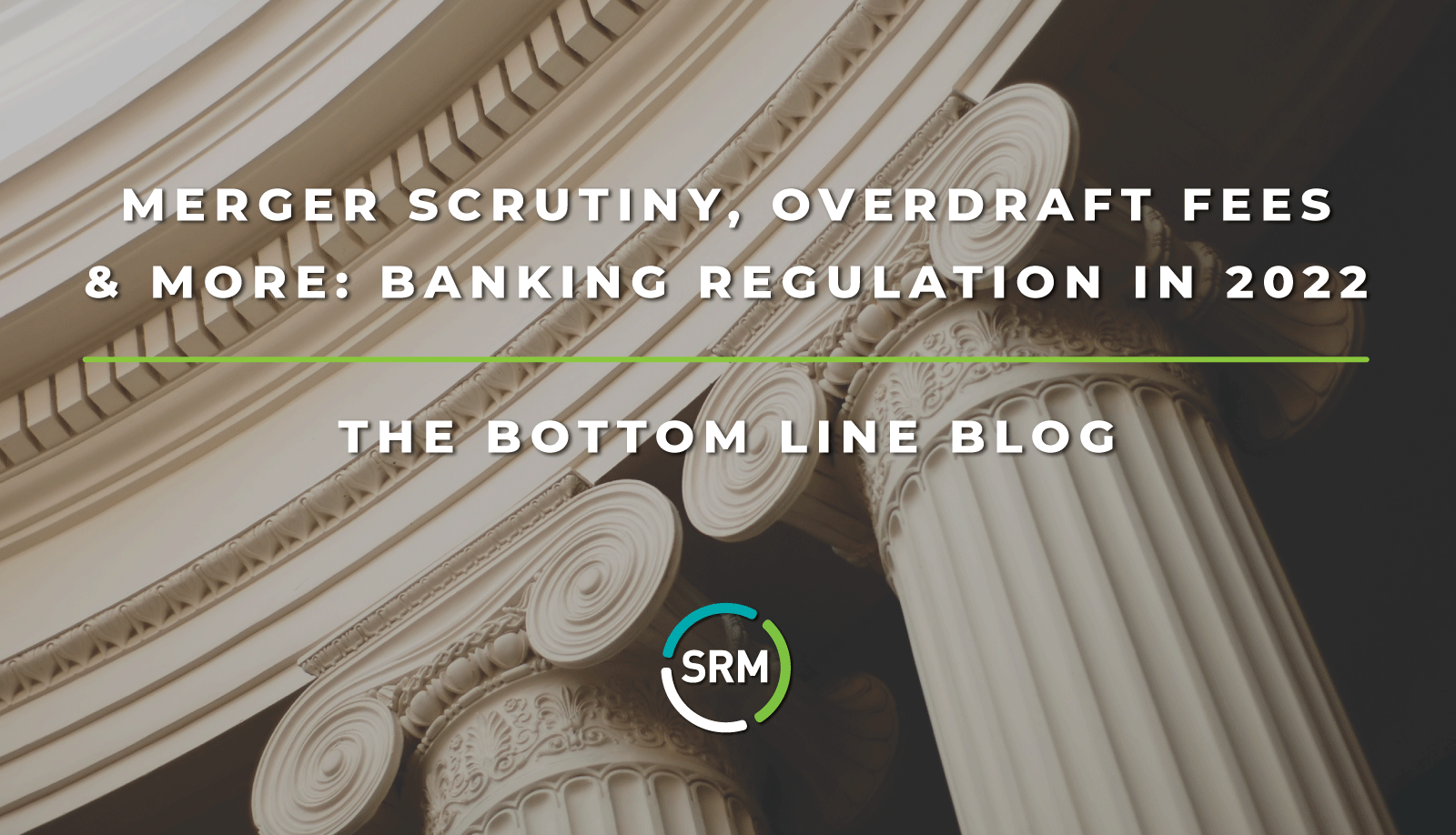
Financial institutions should brace for substantial regulatory change in the year ahead.
Turnover at the top of several federal agencies, including the Consumer Financial Protection Bureau (CFPB), the Office of the Comptroller of the Currency (OCC), and the Federal Deposit Insurance Corp. (FDIC), foreshadows more scrutiny for FIs.
Everything seems to be on the table, including timelines for implementing the Current Expected Credit Loss (CECL) accounting standard, data privacy, and Bank Secrecy Act compliance.
There are, however, several areas that we believe merit the most attention in the coming months.





![Reg-II-Comments-Blog-Image[27]](https://blog.srmcorp.com/hs-fs/hubfs/Reg-II-Comments-Blog-Image%5B27%5D.png?width=836&name=Reg-II-Comments-Blog-Image%5B27%5D.png)
![Durbin_Blog_Image[57]](https://blog.srmcorp.com/hs-fs/hubfs/Durbin_Blog_Image%5B57%5D.png?width=841&name=Durbin_Blog_Image%5B57%5D.png)


